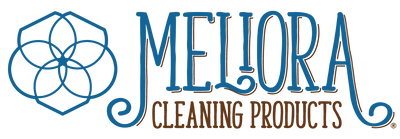Last month, I had the opportunity to help increase awareness of lean manufacturing practices in Cambodia.
In the summer of 2019, Ms. Sokha Chov came to the US from Phnom Penh, as a part of a state department sponsored exchange program. Mike and I got to work with her as a part of that program and through her own experiences, she put together a plan for me to go back and visit with her and her office that conducts audits in garment factories. Her auditing team at Better Factories Cambodia looks at violations and compliance issues with worker rights.
So! Right in the middle of Black Friday/Cyber Monday madness, I was on a long flight over to the northern hemisphere of the Earth.
Over the course of two weeks, I spent one-on-one time with the auditing team delivering training on lean manufacturing. The plan is that through this training, the workers will become more valuable to their company and be paid more in the long-run.
This is important to us at Meliora Cleaning Products because it hits on two of the three parts of the triple bottom line - the people and profit components going together. If a company does better by being more efficient in implementing these lean manufacturing tools, that creates an environment where they're more productive, more effective, making more money and it's easier to justify having a workplace that is better paid. It helps ensure that employees become a greater part of the company as they are using their brains, not just their hands.
Our program’s goal, in this instance, was to help educate and train to increase living wages and opportunities for these workers while making factories and manufacturing plants more compliant (and safer) on top of it all.
The team that was receiving training will 1. now be able to recognize what's happening a little bit better in a factory but 2. they’ll also be prepared to help with compliance issues in service industries and places outside of factories, which may be more useful in general.
A cool discovery I came across when I was doing research for the training - there is a measured, direct impact on labor compliance when you implement these Lean Manufacturing tools that are focused on making a facility more efficient. A couple of decades back, in response to issues with labor compliance, Nike implemented changes in their facilities and started using lean manufacturing tools in some factories. In places where they implemented these lean manufacturing tools, Nike was able to show a 15% reduction in their labor non-compliance. This is a real company that focused on this part of their business to make it better and it did have an impact on workers as well. That was a really cool example that shows: yep, this stuff can actually help!
There are some additional potential grants that could mean a repeat of the experience. Whether I stay involved personally or not, this idea is the start of something. We’re finding ways to look not just at one component of a business but looking more holistically at the business. If we can help make a factory work better in one area, then ultimately can we impact other areas including worker rights and labor compliance.

